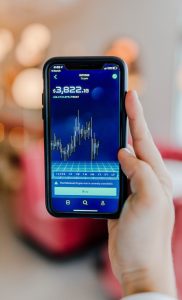Brokers vs. Trading Platforms: Which One is the Best for Forex Trading?
When it comes to forex trading, there are two key components that traders need to consider: brokers and trading platforms. Both play a crucial role in the success of your trading journey, but understanding the difference between the two is essential to make an informed decision.
Brokers serve as intermediaries between traders and the forex market. They provide access to liquidity providers, execute trades, and offer various trading tools and services. On the other hand, trading platforms are the software interfaces that traders use to place trades, analyze the market, and manage their accounts.
To determine which one is the best for forex trading, it is important to evaluate their key features and consider your individual trading needs.
Brokers: Your Gateway to the Forex Market
Choosing the right broker is paramount for successful forex trading. Brokers offer different account types, leverage options, spreads, and customer support. Here are some factors to consider when selecting a broker:
1. Regulation: The first and foremost factor to consider is the broker’s regulation. Make sure the broker is licensed and regulated by a reputable financial authority, such as the Financial Conduct Authority (FCA), the Australian Securities and Investments Commission (ASIC), or the Cyprus Securities and Exchange Commission (CySEC). Regulation ensures that the broker operates under strict guidelines, protecting traders’ funds and maintaining transparency.
2. Trading Conditions: Evaluate the broker’s trading conditions, including spreads, commissions, and leverage. Low spreads and commissions can significantly reduce your trading costs, while appropriate leverage allows you to amplify your potential profits. However, it is important to use leverage responsibly, as it can also magnify your losses.
3. Trading Platforms: Consider the trading platforms offered by the broker. The platform should be user-friendly, technologically advanced, and equipped with essential tools for technical analysis. MetaTrader 4 (MT4) and MetaTrader 5 (MT5) are widely used platforms in the forex market, known for their robustness and extensive range of features.
4. Asset Selection: Different brokers offer varying ranges of forex pairs, commodities, indices, and cryptocurrencies. Ensure that the broker provides the assets you are interested in trading to avoid any limitations in your trading strategy.
5. Customer Support: A reliable broker should offer excellent customer support, including timely responses to queries and technical issues. Look for brokers that provide multiple channels of communication, such as phone, email, and live chat, to ensure prompt assistance when needed.
Trading Platforms: The Tools of the Trade
While brokers facilitate access to the forex market, trading platforms are the tools that allow traders to execute trades and analyze the market. Here are some key features to consider when evaluating trading platforms:
1. User-Friendly Interface: A trading platform should have an intuitive and user-friendly interface, enabling traders to navigate and place trades efficiently. It should also provide customization options, allowing traders to personalize their workspace according to their preferences.
2. Charting and Analysis Tools: Advanced charting and analysis tools are crucial for making informed trading decisions. Look for trading platforms that offer a wide range of technical indicators, drawing tools, and timeframes. Additionally, the platform should provide real-time market data and news updates to help traders stay informed about market trends.
3. Order Execution: The trading platform should offer fast and reliable order execution, ensuring that trades are executed at the desired price without delays or slippage. Additionally, it should provide different order types, such as market orders, limit orders, and stop orders, to accommodate various trading strategies.
4. Risk Management Tools: Effective risk management is essential in forex trading. Look for trading platforms that offer risk management tools, such as stop-loss orders and take-profit orders, to help you protect your capital and maximize profits.
5. Mobile Trading: In today’s fast-paced world, having access to your trading account on the go is crucial. Choose a trading platform that offers a mobile version or a dedicated mobile app, allowing you to monitor and trade the markets from anywhere, anytime.
Finding the Perfect Balance
To achieve success in forex trading, it is crucial to find the right balance between the broker and the trading platform. While the broker provides access to the market and offers essential trading conditions, the trading platform is where you execute your trades and analyze the market.
Ideally, traders should choose a broker that offers a reliable and technologically advanced trading platform. This ensures seamless integration between the two components and enhances the overall trading experience.
In conclusion, both brokers and trading platforms play significant roles in forex trading. Evaluating their key features and considering your individual trading needs is essential to choose the best option for your forex journey. By selecting a regulated broker with favorable trading conditions and a user-friendly trading platform, you can increase your chances of success in the forex market.






